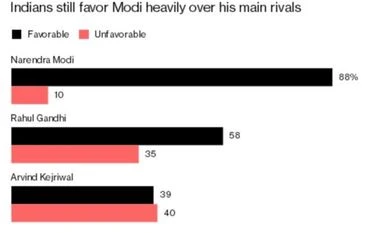The international pecking order is usually defined by economic and military might. That puts the U.S. at the top of the pile, with China gaining fast in second place.
But when it comes to tackling long-term global challenges such as climate change, poverty or peacemaking, it’s also vital to identify which leaders are likely to stick around.
Whether democrats, dictators or somewhere in between, they’re all balanced atop a shifting ziggurat of potential rivals. And only those with the home front under control are in a position to make meaningful promises for the 2020s or beyond. That’s why France’s Emmanuel Macron can map out a seven-year program for reforming the European Union while Theresa May can’t look beyond the date of Britain’s exit from the bloc next year.
So for an alternative take on who really matters in global affairs, we picked 16 countries and analyzed how long their leaders might hold off the palace coups, election defeats or waning powers that end political careers.
We’ve ranked them on their domestic muscle to see whether they are likely to be shaping events, or shaped by them.
Mohammed Bin Salman, Saudi Arabia
U.K. Prime Minister Theresa May could be gone by the end of the month or she could limp on to see Brexit over the finish line in March 2019. Few of her lawmakers think she will still be in office come the next scheduled election in 2022.
May, 61, came close to quitting after losing a 20-point poll lead and her parliamentary majority in an unnecessary snap election last June. Normally that would mean resignation, but her party doesn’t want a leadership contest with Labour ahead in the polls and Brexit negotiations to deal with. Keeping May also allows potential successors a scapegoat if Brexit talks go south.
“She is very vulnerable,” said Nick Anstead, a lecturer in political communication at the London School of Economics. “Her greatest strength is that there is no obvious candidate to replace her who could unite the Conservative Party.”
Michel Temer, Brazil
Michel Temer is the oldest and least popular president since Brazil’s return to democracy in 1985. He will probably also be the briefest.
Elections are due in October and 77-year-old Temer has repeatedly said he won’t be running. Though the economy is gradually recovering from the worst recession on record, most Brazilians aren’t feeling much improvement yet and Temer has been pushing a series of unpopular austerity measures including a liberalization of labor laws and a cut in pension benefits. “There’s been significant progress on the economic front under the Temer government and that has helped confidence to recover,” said Camila Abdelmalack, an economist at CM Capital Markets in Sao Paulo.
In December even Temer himself joked about his approval ratings, saying that his government’s support had doubled—to a whopping 6 percent. Even if he rides out the rest of his term, he’ll have been in office for only two years and five months, less even than Fernando Collor, who was toppled by impeachment.
That’s the consensus for now. But as Xi Jinping showed last month, even long-term prospects can change quickly when a serious player makes their move. We’ll be watching carefully for more events that could reshape the outlook.
— With assistance by Raymond Colitt, Tony Czuczka, Selcan Hacaoglu, Tom Hall, Flavia Krause-Jackson, Patricia Laya, Iain Marlow, Peter Martin, Henry Meyer, Golnar Motevalli, Ladane Nasseri, Isabel Reynolds, Ting Shi, Justin Sink, Gregory Viscusi, Rene Vollgraaff, David Wainer, Mark Williams, and Gregory White
Bloomberg
To read the full story, Subscribe Now at just Rs 249 a month
Already a subscriber? Log in
Subscribe To BS Premium
₹249
Renews automatically
₹1699₹1999
Opt for auto renewal and save Rs. 300 Renews automatically
₹1999
What you get on BS Premium?
-
Unlock 30+ premium stories daily hand-picked by our editors, across devices on browser and app.
-
Pick your 5 favourite companies, get a daily email with all news updates on them.
Full access to our intuitive epaper - clip, save, share articles from any device; newspaper archives from 2006.
Preferential invites to Business Standard events.
Curated newsletters on markets, personal finance, policy & politics, start-ups, technology, and more.
Need More Information - write to us at assist@bsmail.in
)